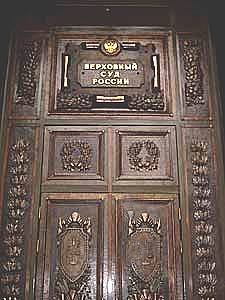
Bellona Launches Oslofjord Kelp Park
Bellona has launched the Oslofjord Kelp Park, a pilot kelp cultivation facility outside Slemmestad, about 30 kilometers southwest of Oslo, aimed at r...
News

Publish date: September 9, 2002
Written by: Charles Digges
News
Russian Supreme Court:
The basis for the Supreme Court decision was that the decree apparently already had been annulled and that it thus, is no longer valid.
But both Nikitin — who with his lawyer Yury Schmidt — filed the complaint, and a Defence Ministry spokesman warned that another secret decree had already been installed to take its place, eroding hopes for many who have been prosecuted or imprisoned by the now cancelled Decree No. 055.
The fight continues
The treason conviction of Pasko, who reported on nuclear dumping by Russia’s Pacific Fleet, relied extensively on Decree No. 055. So did the spy charges against Nikitin, who spent almost five years — including 10 months in jail — battling for his acquittal in September 2000. The decree also secured the conviction of businessman Viktor Kalyadin, who was found guilty of providing military information to the United States.
"We will continue this fight," said lawyer Yuri Schmidt. "This is a fight against the arbitrary rule of government agencies."
Nikitin seconded his lawyer’s comments, but added that "we got what we wanted — Decree No. 55 does not have the force of law."
"But we don’t know what the new decree says and the most important issue now is declassifying the new decree as well as many others," he said, indicating that he will be setting his sights on secret Defence Ministry decrees that govern atomic energy, education and other issues.

Last year, the Supreme Court annulled 10 points of the decree in response to a complaint filed by Nikitin and Schmidt. After Pasko and Kalyadin filed separate complaints, the Court annulled the entire decree in February.
However, those decisions were overturned after the Defence Ministry protested.
Resubmission
Schmidt and Nikitin resubmitted their complaint, but in May the Supreme Court refused to consider it on the grounds that the Defense Ministry had already cancelled the decree and issued a new list of state secrets, Schmidt said. He said the ministry is required to review all such decrees every five years.
On Thursday, the Court’s appeals board upheld the May decision.
But as long as Decree No. 055 is not flatly ruled illegal, it can be used to support allegations of treason allegedly committed while it was in effect, Schmidt said. Furthermore, the new ministry decree which is also classified could be illegal as well, he said.
The secret decree prohibits servicemen from revealing information listed as classified but "it affects any user of information," including civilians. Thus, its contents should be public information, Nikitin said.

Bellona has launched the Oslofjord Kelp Park, a pilot kelp cultivation facility outside Slemmestad, about 30 kilometers southwest of Oslo, aimed at r...

Our November Nuclear Digest by Bellona’s Environmental Transparency Center is out now. Here’s a quick taste of just three nuclear issues arising in U...

For three years now, Bellona has continued its work in exile from Vilnius, sustaining and expanding its analysis despite war, repression, and the collapse of international cooperation with Russia in the environmental and nuclear fields

The Board of the Bellona Foundation has appointed former Minister of Climate and the Environment Sveinung Rotevatn as Managing Director of Bellona No...